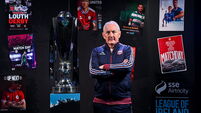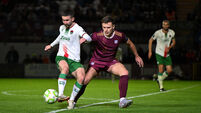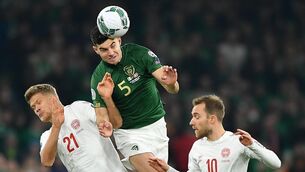David Shonfield: Super League battle may be won but the war wages on

Fear is now the motivation behind the Super League as much as greed for control of the global TV audience. But none of the Shameless Six or the Dirty Dozen deserve any sympathy
After five days of historic turmoil in European football, Florentino Perez sounds more and more like a man flogging a dead parrot.
“No no, it’s not dead, it’s resting… beautiful plumage”.
His European Super League has already established a record, becoming the most vilified project in sport, even without people knowing how it might work.
His fellow conspirators have all deserted him, some evidently doubting whether the bird ever had wings. And yesterday even the nail holding the parrot to its perch came adrift, as bankers JP Morgan succinctly distanced themselves:
“We clearly misjudged how this deal would be viewed by the wider football community and how it might impact them in the future. We will learn from this.”
But while Perez might seem to be living in his own fantasy world when he declares “the Super League is on stand by” that is unfortunately not the case. As pundits such as Ian Wright and Gary Neville have emphasized, this version of the project may have been sunk, but the financial pressures behind it are stronger than ever.
The two giant Spanish clubs have been living on borrowed time, and above all borrowed money, for a long time. That didn’t matter much when their income was rising rapidly, year after year. They had public sector resources and local banks to fall back on. For five years the so-called Beckham Law gave wealthy foreign footballers the right to avoid tax on their worldwide income.
Real Madrid have always been profligate - after all they invented the word galactico - but these factors encouraged some crazy spending on wages and transfers. They paid €101m for Gareth Bale in 2013, they agreed to pay up to €146m for Eden Hazard in 2019.
Perez had been working on his Super League project for at least three years, in cahoots with Juventus and others. Bayern Munich were also in on it. One of the great myths repeated over the last few days is that Bayern are somehow above all this because of German club ownership rules. In reality Bayern have established a unique dominance of domestic football through their financial leverage.
And then came the Covid pandemic...
Fear is now the motivation behind the Super League as much as greed for control of the global TV audience. But none of the Shameless Six or the Dirty Dozen deserve any sympathy. They are not on the brink of bankruptcy, they are very frustrated by the way Uefa can cream off profits as well as regulate the game. But the past week has significantly strengthened Uefa’s hand, even though most politically aware football fans recognise that Uefa is part of the problem as much as the solution.
Players and managers have been alienated as well as supporters. Sports lawyers argue that even the limited commitment to the Super League by these 12 clubs could have entitled players to claim breach of contract. At the least there has been a breach of trust in the way the project was announced without warning. And it may also have been in breach of EU competition law (Article 101 of the Treaty gives the European Commission draconian powers against cartels).
So if and when the Super League idea is revived it will definitely look different. The model could well be basketball.
Twenty years ago nine clubs, including Barcelona and Real Madrid, broke from the international federation FIBA to set up the Euroleague. In May 2001 there were two European champions from the rival leagues. Subsequently, the two sides came to an agreement and the current set-up involves 18 clubs in a “semi-closed” competition.
Eleven of them are permanent members of the league, including Barcelona, Real Madrid, and Olimpia Milano (no relation to Inter or AC). The other seven places have undergone changes. Five used to be awarded annually on merit to the winners of national leagues and the second-tier EuroCup with two places awarded on a wild-card basis, but there is now no direct access from national leagues.
So it is essentially the 11 permanent members of the league who call the shots. And note that Bayern Munich, who have an associated status, are also part of the inner circle.
The basketball set-up does work, though as you would expect it has been increasingly dominated by a handful of teams. The fans are accustomed to seeing the same sides playing each other all the time. At the end of the regular season the top eight sides go into the play-offs, each playing five games against a single opponent. The winners then advance to a Final Four series.
But football is a very different sport. From Champions League experience the attractions of repeated fixtures involving the same clubs tend to pale after the third or fourth meeting.
No one wants to dine on the same fancy food all the time. Egg and chips is also good, or maybe a nice plate of coddle. Especially on a cold night in Stoke.








